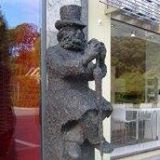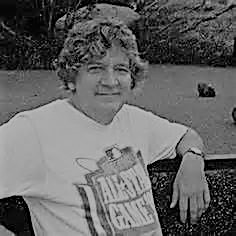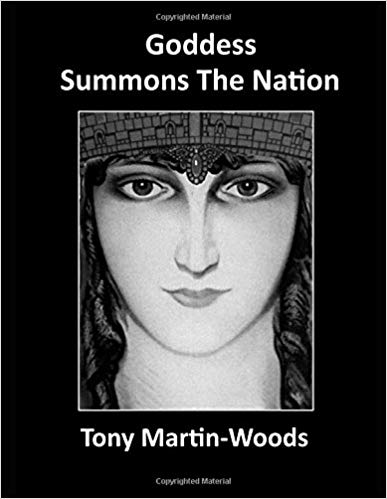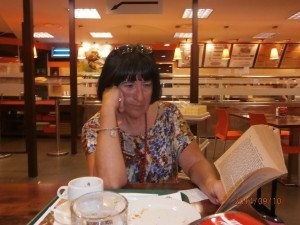Dream: The Old Dude with Big Side-Whiskers On Being Called Honey by a Waitress Named Kitty
Yes, Old Ibsen was indeed a sight, I’ll have the Boot Hill burger, I believe,
Appearing in a dim-lit dream where I As the young cowboy said, and some fries…
Lay, probably snoring, on an anxious night, Where does a man end up when he dies?
His whispery voice, a dagger-scraping sigh, When I used to keep a card up my sleeve
Disdainful but intent, urgent to be heard, I knew it was safe with my back to the door
Said, “Listen, cracker, once I had it all And a cup of hot coffee, my hair slicked back,
From my Muses, and then onstage my word And pieces of silver in a small leather sack,
Was their law as surely as avalanches fall. But now you can’t trust nothing any more.
At dinner my fellow Norwegians would rise There used to be a train that ran each day
When I appeared, and the Queen gave to me Through here, and then you could get away
As Royal Playwright a Royal Garden key, From everything. You could go or stay,
And I prospered mightily in all men’s eyes. As the spirit rolled the dice and smiled,
But I tell you now, and listen well to me, Time to go, sometimes time to play,
Your work is diminished by prosperity. Happy as a hog and careless as a child.
The wisdom we seek in optimistic dreams You don’t want to hear an old man’s lies,
Moves through life, when captured, delusive, But everything else he has has dried,
Though the silence biding Mrs. Alving’s screams And his friends and all of his dogs have died,
Defies the mutable, the shifty and elusive. And there’s not much fire burning in his eyes,
Old age calls for a mature intensity And you’ll never know how hard the man has lied
Reaching always toward ghostly shades Or how many shots he took long ago
Hovering maliciously in dark immensity, That no one remembers or ever will know.
Clutching their rust-rotten, blood-rusted blades. Hell, it don’t matter now what all he tried,
Wake up, forget the clowns and their clamor, But when you call him honey, honey, just try
Turn to my Muses, the grim inspiration To give him a hard look straight in the eye
Of rough-edged insight, of ax and of hammer, To stir up them ashes he’s cherishing inside,
The poet’s kind of living, the deadly vocation. And the angels will sing for you, loud and sweet,
If I had my work to do again, it’s true, And heaven’s gates will shake and open wide
I’d write my work in blood, and so should you.” When you bring sacrifice for him to eat.

R. W. Haynes has taught literature at Texas A&M International University since 1992. His recent interests include the early British sonnet, and he is completing a second book on the Texas playwright and screenwriter Horton Foote (1916-2009). In his poetry, Haynes seeks to celebrate life, liberty, and the pursuit of happiness without sounding any more dissonant notes than he has to. In fiction, he works toward grasping that part of the past which made its mark on his generation. He enjoys teaching drama, especially the Greeks, Ibsen, and Shakespeare, and he devoutly hopes for a stunning literary Renaissance in South Texas.
Robin Ouzman Hislop is Editor of Poetry Life and Times ; his publications include
All the Babble of the Souk , Cartoon Molecules and Next Arrivals, collected poems, as well as translation of Guadalupe Grande´s La llave de niebla, as Key of Mist and the recently published Tesserae , a translation of Carmen Crespo´s Teselas.
You may visit Aquillrelle.com/Author Robin Ouzman Hislop about author. See Robin performing his work Performance (University of Leeds)










